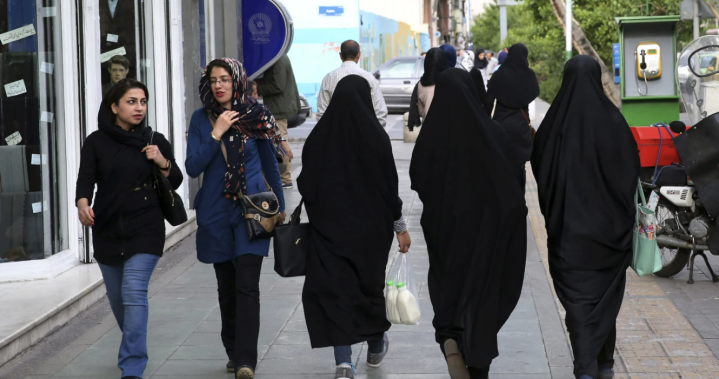Editor’s Note: The following article contains distressing details that may trigger and disturb certain readers. We advise exercising discretion. It has been over two decades since Lily Pourzand fled her homeland out of fear of persecution for her advocacy for women’s rights. Her parents faced imprisonment before being exiled from Iran, with her mother working as a human rights activist and lawyer, and her father being a well-known journalist who was tortured and died under questionable circumstances during the 1979 Islamic Revolution. In 1999, Pourzand left Iran after completing law school and publishing an article criticizing laws mandating the hijab for women. Pourzand recounted the threats she received, including kidnapping, rape, and murder, which led her to seek refuge in Canada. She shared, “The Iranian system has been extremely brutal towards Iranian women.”
The hijab, a symbol of Islamic modesty worn as a headscarf, has become the focal point of protests in Iran that have spanned for months. These demonstrations were sparked by the death of Mahsa Amini in September, a 22-year-old woman who was reportedly arrested by the morality police for not wearing her hijab correctly and tragically died while in custody. Although the morality police reduced their physical presence on the streets after Amini’s death, they turned to artificial intelligence to enforce the mandatory dress code as the government faced challenges in maintaining control over the protests. However, on Sunday, the Islamic Republic made an unexpected announcement on live television declaring the reinstatement of the morality police.
Police spokesperson Gen. Saeed Montazerolmahdi stated that the morality police would resume their tasks of notifying and detaining women who do not comply with the hijab dress code in public. This move was justified as being for the mental well-being and societal security of the Iranian population. Iran has been governed by a theocratic regime for over four decades, and calls for the overthrow of its leaders have amplified following Amini’s death. Throughout these protests, women have taken on leading roles, and activists like Pourzand and Iranian American human rights lawyer Gissou Nia have vowed to continue advocating for change.
In Pourzand’s words, “Iranian women and Iranian civil society are not reverting to their position of ten months ago.” She emphasized the resilience and solidarity of Iranian women, stating, “Iranian women uplift each other, providing support in their fight for change.” Pourzand highlighted the systemic cracks in the gender apartheid within Iran and affirmed that the regime is aware of these challenges. Nia concurred, noting that resistance endures, evident in women disregarding the official dress code and the recent persecution of their male allies.
Nia cited the recent arrest of Majid Tavakoli, a renowned dissident and activist, who was sentenced to six years in prison merely for sharing philosophical musings on Twitter and within clubhouses. Additionally, Mohammed Sadeghi, a popular Iranian actor, was arrested during a live social media broadcast for protesting against the detention of women by the morality police and voicing his opposition to such practices. The Iranian government has attributed the protests to foreign conspiracies without presenting concrete evidence.
Nia emphasized that these protests aim to dismantle the gender discriminatory framework embedded in Iran’s Islamic penal code. This framework assigns men as the sole heads of households and automatically grants custody of children born after a divorce to the ex-husband, unless the woman has remarried. Nia explained that until this framework is dismantled, the vast gender inequality prevalent in Iran will persist and be enforced by law.
Pourzand interpreted Sunday’s announcement as a manifestation of fear from the Islamic regime following the Women, Life Freedom movement. She believes that the regime acknowledges the growing lack of control and widespread desire for freedom among Iranian women. Pourzand expressed that this movement not only seeks change for women but also advocates for minorities.
Denial of responsibility! VigourTimes is an automatic aggregator of Global media. In each content, the hyperlink to the primary source is specified. All trademarks belong to their rightful owners, and all materials to their authors. For any complaint, please reach us at – [email protected]. We will take necessary action within 24 hours.


